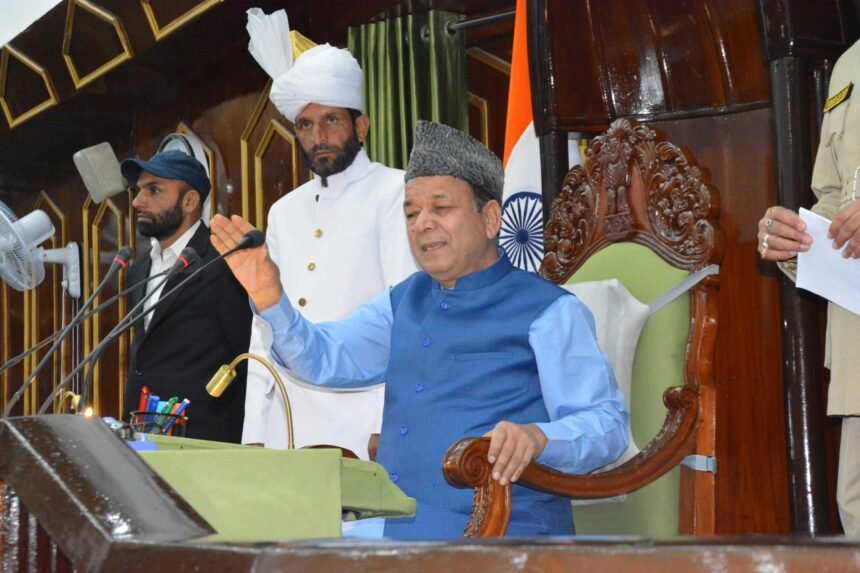Jammu, Sept 22: Jammu and Kashmir Assembly Speaker Abdul Rahim Rather has stated that the elected government lacks the powers necessary to fully implement its manifesto until statehood is restored.
Speaking to Kashmir News Service (KNS), Rather noted that while people voted enthusiastically for change, the absence of adequate powers remains the biggest obstacle.
“The government doesn’t have the authority to implement all promises immediately. Until statehood is restored, it will be difficult for the government to deliver on its manifesto in full,” he said.
He added that there is a widespread perception that the Chief Minister does not possess the powers expected of the office. “According to business rules, the division of authority between the government and the Lieutenant Governor’s administration must be clarified. This is particularly significant in matters such as reservation policies,” Rather explained.
Responding to concerns about unmet public expectations despite the ruling party’s two-thirds majority, Rather emphasised that resignation is not a solution.
“Resignation is not a problem-solving tool. If it were, we would have already asked everyone to resign and walked away from governance,” he said.
On the timeline for statehood restoration, Rather highlighted assurances from the highest levels. “The Prime Minister, Home Minister, and the Supreme Court have all stated that statehood will be reinstated. We should have faith in these assurances,” he added.
Addressing opposition allegations of bias in Assembly proceedings, Rather said his actions were strictly within constitutional limits. “I make decisions based solely on legal frameworks, not political convenience. Whether a decision favours or disfavors someone does not matter; what matters is upholding the law,” he said.
Regarding reservation policies, Rather said a committee and a cabinet sub-committee had submitted their reports, which are currently under government consideration. He also stressed that the Assembly session must be convened in October as required by the Constitution.
Rather further noted that business rules defining the Chief Minister’s powers are yet to be finalised. “It remains unclear what falls under the Chief Minister’s jurisdiction and what is under others. This gap between expectations and reality is why people feel disheartened,” he said.
Acknowledging rising public frustration over unmet expectations, Rather urged people to understand the limitations of the current arrangement.
“People want a strong and empowered government with adequate authority to address their problems. This expectation is genuine, but citizens should also understand the limits of the present setup,” he concluded.
(Agencies)

